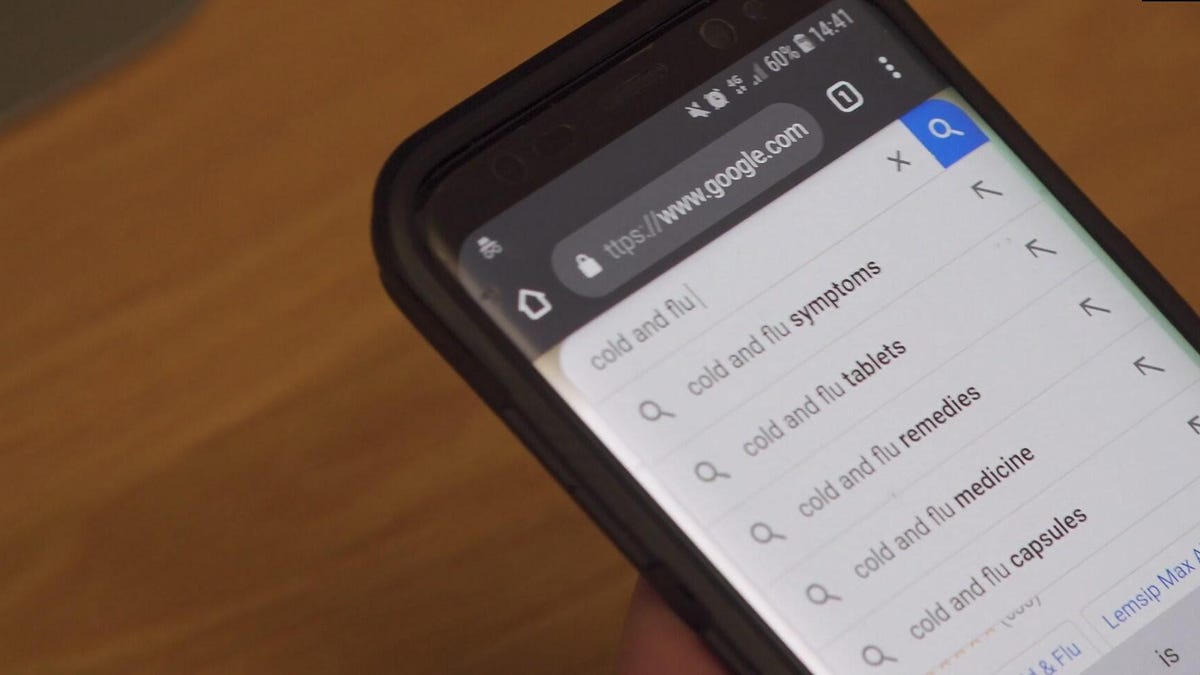Google searches could illuminate the shadowy spread of the coronavirus
Researchers are digging into search data to help track and understand a pandemic.

Google searches could hold clues to the spread of the coronavirus.
Thanks to limited testing and data, the pathways that the novel coronavirus uses to spread remain relatively invisible and challenging to track. Now researchers are mining Google search data for insights into the propagation of the coronavirus and the respiratory disease it causes, COVID-19, as well as its symptoms and other impacts.
One data scientist says he's found evidence of a new symptom of the disease hidden amid countless search queries, while another team is working on models that can reveal the true extent of community spread in a population.
Researchers from Microsoft, Harvard Medical School, Public Health England and University College London are hoping to use machine learning and Google search data to track the spread of COVID-19.
"I see this as a longer-term project that will run its course until, at least, the first, and hopefully the last, wave of the pandemic is over," the project's leader, Vasileios Lampos from University College London, told me.
Lampos says the project is ongoing -- a report on the work is being updated regularly on GitHub -- and more data is needed to validate the team's observations, but the hope is that machine learning models analyzing search data can predict the prevalence of COVID-19 in specific countries or other populations.
The basic concept is that when community spread of COVID-19 is occurring in a population, people with the infection begin to Google the symptoms they're seeing. Of course, people who don't have the virus may also do searches about symptoms after hearing about them through news reports, so the model Lampos and colleagues are developing aims to control for this and other complicating factors.
Previous research has shown that flu-related Google searches tracked actual rates of flu infection in the US. Lampos' project builds off a similar effort to estimate the presence of flulike illness.
While search data might be able to act as an imperfect but still helpful proxy for tracking the virus in lieu of ubiquitous testing, it can also help us learn more about the virus and how it affects us.
Economist and data scientist Seth Stephens-Davidowitz reported in The New York Times the results of his own ad hoc research, which seemed to reveal a new COVID-19 symptom popping up in Google searches among populations with high rates of confirmed cases.
"Searches for 'my eyes hurt' over the previous week were highest in New York, New Jersey, Connecticut, Louisiana and Michigan," he writes.
Indeed, the American Academy of Opthamology is now advising eye doctors that "reports suggest the virus can cause a mild follicular conjunctivitis."
Search data can also provide other valuable trend information before official statistics can be compiled for things like unemployment. Finance giant UBS has already been keeping tabs on Google search interest in unemployment on the state and national level.
Tracking the virus through search isn't yet a perfect science, but at this point public health leaders are hungry for any data they can get. Lampos says his team has been sending what they have to Public Health England on a weekly basis.

